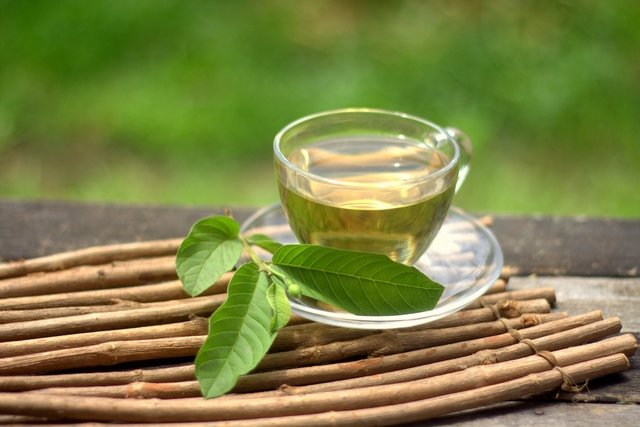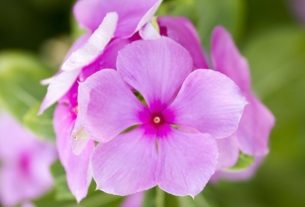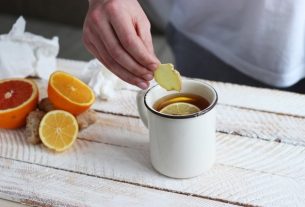Guava tree is a medicinal plant of the species Psidium guajava It is highly recommended to help treat diarrhea, diabetes, high cholesterol or relieve pain, as it has antispasmodic, anti-inflammatory and antioxidant properties.
This plant is well known for its fruit, guava, however, its leaves have medicinal properties and can be used to prepare teas, compresses, sitz baths or tinctures, for example. Discover the benefits of guava.
Guava leaves can be found in health food stores or herbalists, and should be used under the guidance of a doctor or a professional specialized in medicinal plants.

What is it for
Guava is recommended for:
1. Fight diarrhea
Guava leaves have antidiarrheal and antispasmodic properties due to the presence of quercetin in their composition, which helps to relax the intestinal muscles and prevent contractions, combating diarrhea.
Thus, guava leaf tea can be used to combat diarrhea caused by gastroenteritis or dysentery, for example.
2. Control diabetes
The polysaccharides and flavonoids, such as guaijaverin and avicularin, present in guava leaves have antidiabetic activity that helps reduce blood sugar levels and control diabetes.
This is because these substances inhibit the activity of α-amylase and α-glucosidase, reducing the absorption of carbohydrates from food in the intestine, in addition to improving the function of the β cells of the pancreatic islets.
3. Lower bad cholesterol
The guava leaf is rich in flavonoids, such as quercetin, guaijaverin, avicularin, myricetin and kaempferol, for example, with lipid-lowering properties, which help lower bad cholesterol (LDL and triglycerides.
However, it is important to emphasize that the use of guava does not replace changes in diet, physical exercise and cholesterol medications recommended by the cardiologist. See how high cholesterol is treated.
4. Prevent cardiovascular diseases
By helping to lower bad cholesterol and triglycerides, guava can help prevent cardiovascular diseases, such as atherosclerosis, heart attack or stroke, for example.
Furthermore, by helping to control blood sugar levels, guava may help reduce the risk of cardiovascular diseases associated with diabetes.
5. Prevent the accumulation of fat in the liver
Guava leaf helps prevent the accumulation of fat in the liver and the development of fatty liver, mainly due to the flavonoids in its composition that help reduce liver resistance to insulin and the levels of liver enzymes, such as ALT and AST.
Additionally, this plant can help lower bad cholesterol (LDL), which reduces the risk of developing fatty liver.
6. Help with weight loss
Guava leaf has anti-obesity properties, mainly because it helps to reduce the absorption of sugars in the intestine and control blood sugar levels, which can help with weight loss.
Furthermore, this plant helps control diabetes and lower bad cholesterol and triglycerides, preventing diabetes and high cholesterol in overweight or obese people.
In this way, guava can be used in conjunction with a balanced, healthy and varied diet and physical exercise for weight loss. See how to have a balanced diet.
7. Fight infections
Guava leaves have antibacterial properties that can help fight infections, especially wounds or ulcers on the skin, helping with healing, or vaginal infections.
Furthermore, guava can help fight infections in the mouth and gums, and aid in the treatment of canker sores, mouth ulcers, gingivitis or oral candidiasis.
8. Relieve pain
Guava has analgesic and anti-inflammatory properties that help relieve various pains, such as intestinal spasms, stomach pain, menstrual cramps, sore throat or toothache, for example.
9. Strengthen the immune system
Guava, being rich in antioxidants, is capable of reducing damage from free radicals in the body, which helps to improve the function of the body’s defense cells and strengthen the immune system.
10. Fight inflammation
Guava leaf has anti-inflammatory properties that help fight skin inflammation caused by skin wounds, insect bites or acne.
11. Help fight cancer
The guava leaf is rich in triterpenoids, sesquiterpenes, tannins, psiguadials, volatile oils, flavonoids, benzophenone glycosides and quinones, with antioxidant, antiproliferative and antitumor properties.
Studies carried out in the laboratory with breast, cervical, nasopharyngeal, prostate and colorectal cancer cells have shown that substances in guava can help reduce the proliferation or increase the death of cells from these types of cancer.
However, studies in humans are still needed to prove this benefit. Check out the complete list of foods that help prevent cancer.
12. Combat hair loss
Guava leaf can also help combat hair loss, as it is rich in vitamins A, B and C, with antioxidant and anti-inflammatory properties, which prevent hair loss and promote hair growth, and can be used to help with hair loss. treatment of androgenetic alopecia, for example.
How to use
The normally used parts of the guava tree are the fresh leaves or the bark stem for preparing tea, tincture, essential oil, compresses or sitz baths.
1. Guava leaf tea
Guava leaf tea must be prepared using the fresh leaves of this medicinal plant.
Ingredients
- 1 tablespoon of fresh guava leaves;
- 1/2 liter of water.
Preparation mode
In a pan, boil the water and, after turning off the heat, add the guava leaves. Cover the pan and let it rest for 5 to 10 minutes. Leave to cool, strain and drink 2 to 3 times a day.
This tea can also be used to make mouthwashes, to treat infections in the mouth or gums, such as oral candidiasis, or mouth ulcers, mouth ulcers or gingivitis, for example. In these cases, you should rinse your mouth with guava leaf tea, 2 to 3 times a day, and then spit it out.
2. Guava essential oil
Guava essential oil, also called guava essential oil, can be used for massages as it has anti-inflammatory action that can help relieve pain in cases of fibromyalgia, muscle pain or rheumatism.
To use on the skin, guava essential oil must be diluted in a carrier oil, such as coconut oil or sweet almond oil, for example.
Furthermore, it can also be used by adding a few drops of guava essential oil to moisturizing creams or shampoo, due to its antioxidant and antimicrobial properties.
Guava essential oil can also be added to aromatherapy diffusers to perfume the home. Learn how to do aromatherapy with essential oils.
3. Guava tincture
Guava tincture can also be used orally, with a recommended dose for adults of 1 to 4 mL of tincture per day.
The duration of treatment with guava tincture depends on medical guidance and indication.
4. Guava Leaf for Inflammation
Guava leaf for skin inflammation should be used in the form of compresses.
Ingredients
- 10 fresh guava leaves;
- 1 liter of water.
Preparation mode
Bring the water to a boil and when it boils add the fresh guava leaves and let it boil for 2 to 3 minutes. Then, wait for it to warm and soak cotton or gauze in this solution and apply the compress to the skin for 20 minutes, 1 to 2 times a day.
5. Sitz bath with guava leaves
Guava leaves have antibiotic properties, making them an important ingredient to help treat vaginal discharge or infections.
Ingredients
- 30 g of guava leaves;
- 1 liter of water.
Preparation mode
Boil 1 liter of water. Turn off the heat and add the guava leaves and close the pan for 3 to 5 minutes. Strain the leaves and place the tea in a bowl.
When it is warm, sit in the basin without clothes to take a sitz bath, carefully washing the entire genital region until the water cools. Repeat the procedure 2 to 3 times a day for 3 days.
6. Guava leaf for hair
Guava leaf for hair can be used in the form of tea, soaking a cotton ball or compress in guava leaf tea, and applying it to the scalp, massaging gently for at least 10 minutes, and leaving it to act for 30 to 60 minutes. This procedure can be done 2 to 3 times a week.
Then, wash your hair correctly, with your usual shampoo and/or conditioner.
Another option is to apply the tea to the scalp and leave it to act overnight, washing your hair the next morning.
Possible side effects
Guava tea is well tolerated by most people when used in recommended amounts and for a maximum of 30 days.
However, it may cause constipation, nausea, or stomach pain when consumed in excess or used by people who have an increased sensitivity in the gastrointestinal system.
When applied to the skin, guava can cause skin irritation or worsen eczema in some people.
Who shouldn’t use
Guava should not be used by children, pregnant or breastfeeding women, whether in the form of tea, tincture, essential oil or compresses.
Furthermore, guava is not recommended for people with constipation, eczema, or who are allergic to this medicinal plant.
For diabetic people, guava should be used with caution, as it can interact with diabetes medications and lower blood sugar too much, causing hypoglycemia.
Guava tincture, as it contains alcohol, should also not be used by people being treated for alcoholism or who use the medicine disulfiram.

Sign up for our newsletter and stay up to date with exclusive news
that can transform your routine!
Warning: Undefined array key "title" in /home/storelat/public_html/wp-content/plugins/link-whisper-premium/templates/frontend/related-posts.php on line 12
Warning: Undefined array key "title_tag" in /home/storelat/public_html/wp-content/plugins/link-whisper-premium/templates/frontend/related-posts.php on line 13



